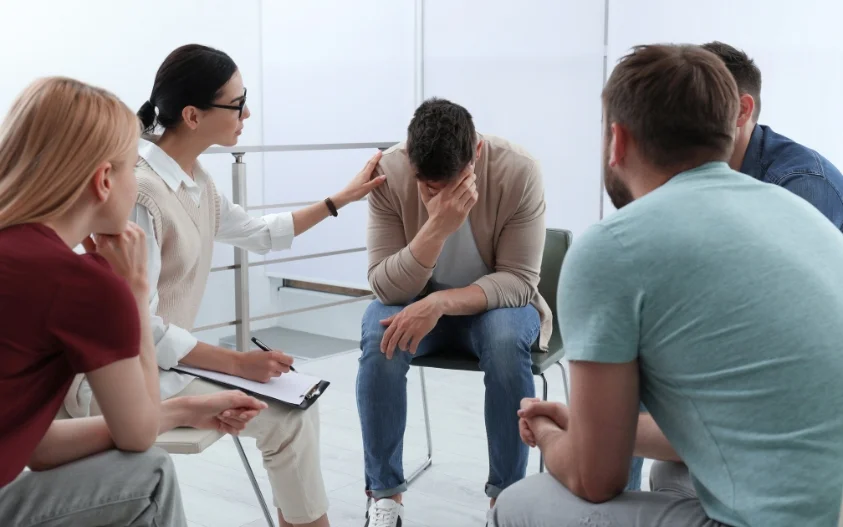24/7 Helpline:
(866) 899-221924/7 Helpline:
(866) 899-2219
Learn more about Opiate Detox centers in Marshall County

Other Insurance Options

Sliding scale payment assistance

Group Health Incorporated
Beacon

AllWell

CareSource

United Health Care

Holman Group

Coventry Health Care

GEHA

MHNNet Behavioral Health

Optum

Covered California

Sutter

American Behavioral

Health Partners

Providence

Excellus

BlueCross

Multiplan

UnitedHealth Group














AA – Alcoholics Anonymous
AA – Alcoholics Anonymous is a private rehab located in Gilbertsville, Kentucky. AA – Alcoholics Ano...






































